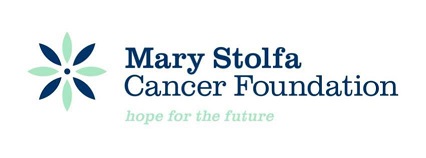 |

|
|
|
Initial results from a large, randomized clinical trial for patients with advanced colorectal cancer show that those who received a regimen containing the investigational drug oxaliplatin lived months longer than those who received a standard therapy. Patients on the oxaliplatin regimen, known as FOLFOX4, also had a longer time before their tumors progressed, a better response rate, and fewer severe side effects. Sponsored by the National Cancer Institute (NCI), the trial has been conducted by a network of researchers led by the North Central Cancer Treatment Group (NCCTG).* Study chair Richard Goldberg, M.D., of the Mayo Clinic Cancer Center, Rochester, Minn., presented the new data today at the annual meeting of the American Society of Clinical Oncology (ASCO) in Orlando, Fla. "This trial has given us important new information about the treatment of advanced colorectal cancer," said Richard Kaplan, M.D., chief of NCI's Clinical Investigations Branch, who coordinates colorectal cancer treatment trials sponsored by NCI. "The patient benefit seen with the FOLFOX4 regimen is encouraging; FOLFOX4 is a promising new option in our armamentarium of treatments for colorectal cancer." The trial, known as N9741, compared three drug regimens: 1) a standard (control) treatment, known as IFL (irinotecan/5-fluorouracil/leucovorin) or the "Saltz regimen," 2) the experimental regimen FOLFOX4 (5-fluorouracil/leucovorin/oxaliplatin) and 3) another experimental regimen combining oxaliplatin and irinotecan. In a planned interim analysis of the data, the researchers found that outcomes for patients receiving FOLFOX4 were significantly better than for those on the control arm, IFL. Patients on the FOLFOX4 arm lived about four months longer than those on the IFL arm (median 18.6 months vs. 14.1 months). They also had a significantly better time to tumor progression (median 8.8 months vs. 6.9 months) and higher response rates (38 percent vs. 29 percent). The one-year survival rate on the FOLFOX4 arm was 71 percent compared to 58 percent on the IFL arm. In addition, patients receiving FOLFOX4 had less toxicity (severe side effects), even though many patients taking oxaliplatin do develop a neurotoxicity that is unique to the drug. Based on the new data, accrual to all arms of the N9741 protocol except FOLFOX4 has been discontinued. Patients already enrolled in one of the other two arms will be offered the option of switching to the FOLFOX4 arm in consultation with their physicians. In their interim analysis of N9741, the researchers examined data from 264 and 267 patients accrued to the IFL regimen and the FOLFOX4 regimen, respectively, between March 1999 and April 2001. The minimum follow-up for these patients has been one year. The investigators noted that the survival advantage for FOLFOX4 patients may, in part, be due to second-line therapies -- the treatments patients received after discontinuing therapy on the N9741 study. Irinotecan is commercially available and was prescribed for 52 percent of patients after FOLFOX4 failed to further control disease; the investigational agent oxaliplatin, which is not commercially available, was prescribed for only 17 percent of patients after IFL. These differences in second-line therapy may account for some part of the observed difference in survival. Sanofi-Synthelabo, Paris, the manufacturer of oxaliplatin, has announced that data on the use of oxaliplatin for second-line treatment is being submitted to the Food and Drug Administration for review. Until oxaliplatin is commercially available in the United States, the NCI is sponsoring an expanded access program to replace N9741 and to allow patients with advanced or metastatic colorectal cancer to receive oxaliplatin in the FOLFOX4 combination chemotherapy regimen. Known as a Treatment Referral Center (TRC) protocol, the program provides access to oxaliplatin using the FOLFOX4 regimen for eligible patients. The TRC-0201 protocol will be available through NCI Comprehensive and Clinical Cancer Centers and other participating institutions. TRC sites are located around the United States so that patients in all geographic regions will have equitable access to the drug. Patients and physicians may call the National Cancer Institute's Cancer Information Service, 1-800-4-CANCER, for information on eligibility requirements and a list of participating sites. Due to very limited drug supply for the next several months, not all eligible patients will be able to receive FOLFOX4 through this program. Therefore, the NCI is establishing a system by which up to 300 eligible patients per month will be randomly selected for the TRC through a lottery. Designed in consultation with patient advocates, a lottery system is considered the fairest way to distribute drugs with limited availability. However, clinicians should be aware that other first-line treatment options for these patients are available, including infusional fluorouracil/leucovorin with or without irinotecan. Sanofi-Synthelabo is also establishing an expanded access program for patients who have already received therapy for their colorectal cancer. More information is available from the company at 1-877-435-6928. * The N9741 trial is conducted by the North Central Cancer Treatment Group (NCCTG), the Cancer and Leukemia Group B (CALGB), the Eastern Cooperative Oncology Group (ECOG), the Southwest Oncology Group (SWOG), and the National Cancer Institute of Canada Clinical Trials Group. Posted Date: Saturday, May 18, 2002 | About Mary Stolfa | Our Mission | Newsletter | Volunteer | Beauty Parlor | News Articles | Clinical Trials | Other Resources for Cancer Information | Nutrition | Acknowledgement, Awards & Public Acclaim | Foundation Projects | MSCF Products | | Return Home | Fundraisers | Donations | Wall of Honor | Stories of Hope | Information on Specific Cancers (A-M) | Cancer Issues | Contact Us | Site Index | |
||
